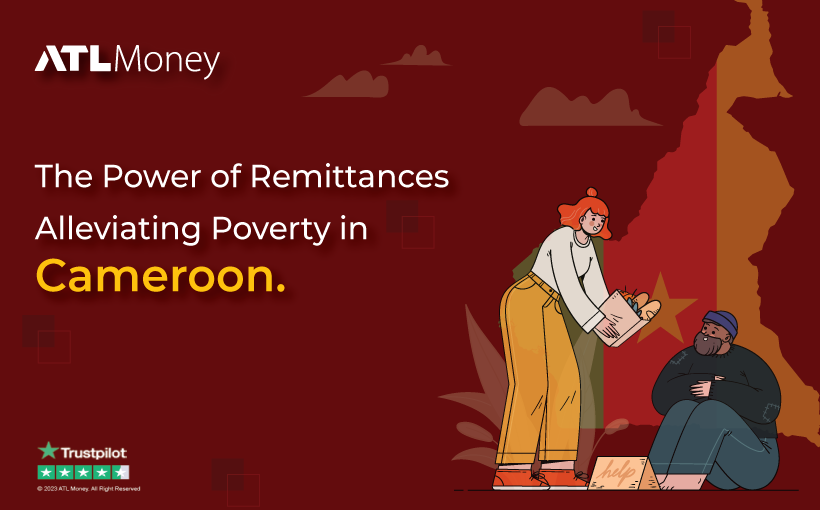As one of the fastest-growing and most dynamic economies in Africa, Cameroon has emerged as a focal point for global studies examining the links between remittances, poverty reduction, and economic development. While several African countries have received significant funding from abroad, Cameroon stands as a testament to the transformative power of remittances.
It is no secret that remittances do play a crucial role in poverty reduction and economic development in developing economies. Evidence shows that remittances to Cameroon have created an enormous effect on the national economy, which translates into improved living standards and social conditions.
First of all, remittances are a crucial source of foreign exchange that helps the nation’s financial sector by boosting investment levels and balancing out the economy. Because of the infusion of foreign capital, Cameroon has been able to expand its investment opportunities, such as infrastructure construction and the development of new entrepreneurship programs that support educational and employment opportunities, and make significant strides toward achieving its overall development goals.
Secondly, the influx of money facilitates the creation of linkages and networks between Cameroon and its diaspora, supporting the country’s socio-economic development. Remittance recipients often channel their income into small businesses such as agriculture, handicraft-making, tourism, and other productive sectors. These micro-enterprises generate employment opportunities, increase trade volumes, and encourage foreign investments in the country.
The impact of remittances on poverty eradication in Cameroon cannot be overemphasized. Remittances received by Cameroonians have enabled better access to education, healthcare services, and essential needs such as food and housing. A household survey conducted in 2019 by the World Bank estimated that approximately 2 million Cameroonians were living below the national poverty line, of which many have found a safety net thanks to remittances. Moreover, remittances have helped in reducing income inequality, a challenge that persistently plagues the country’s economic progress.
It’s worthy to note that the use of fintech has been instrumental in revolutionizing how remittances are being distributed and received in Cameroon. The emergence of app-based payment systems, and blockchain-secured peer-to-peer platforms has created an alternative and efficient means of transferring funds at considerably lower fees. These advancements have created an opportunity for low-income earners in the country to tap into new digital financial services that allow them to focus on building economic stability and creating new business ventures.
In conclusion, the power of remittances cannot be ignored in Cameroon’s journey toward poverty reduction and economic development. The benefits of remittances go beyond the individual households receiving the payment but significantly impact the country as a whole. The government and stakeholders play a vital role in creating an enabling environment to attract more remittances and harness the innovative potential of fintech to create more efficient, cheaper, and more inclusive systems. Consequently, it’s up to Cameroon to forge ahead with economic reforms that adequately channel the remittance gains toward sustainable development objectives.
